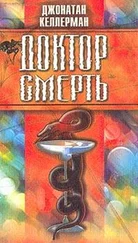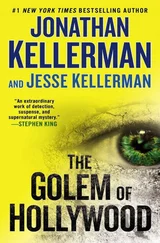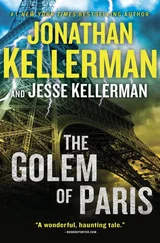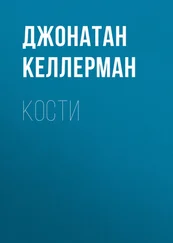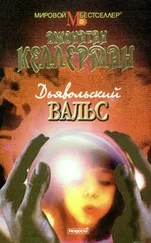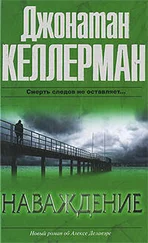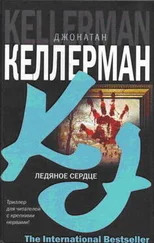We sat down at a picnic-type table and Kruger went behind the food counter to a back room. He emerged with a tray of Danish pastries and coffee. The baked goods looked high-quality. I hadn’t seen anything like them behind the glass.
Across the room a group of children sat at a table eating and drinking under the watchful eyes of two student counselors. Actually, attempting to eat was more accurate. Even from a distance I could see that they suffered from cerebral palsy, some of them spastically rigid, others jerking in involuntary movements of head and limb, and had to struggle to get the food from table to mouth. The counselors watched and sometimes offered verbal encouragement. But they didn’t help physically and lots of custard and Jello was ending up on the floor.
Kruger bit with gusto into a chocolate Danish. I took a cinnamon roll and played with it. He poured us coffee and asked me if I had any questions.
“No. Everything looks very impressive.”
“Great. Then let me tell you about the Gentleman’s Brigade.”
He gave me a canned history of the volunteer group, stressing the wisdom of the Reverend Gus in enlisting the participation of local corporations.
“The Gentlemen are mature, successful individuals. They represent the only chance most of these kids have of being exposed to a stable male role model. They’re accomplished, the cream of our society and as such give the children a rare glimpse of success. It teaches them that it’s indeed possible to be successful. They spend time with the kids here, at La Casa, and take them off-campus – to sporting events, movies, plays, Disneyland. And to their homes for family dinners. It gives the children access to a lifestyle they’ve never known. And it’s fulfilling for the men, as well. We ask for a six-month commitment and sixty percent sign up for second and third hitches.”
“Can’t it be frustrating, for the kids,” I asked, “to get a taste of the good life that’s so far out of their grasp?”
He was ready for that one.
“Good question, Doctor. But we don’t emphasize anything being out of our kids’ reach. We want them to feel that the only thing limiting them is their own lack of motivation. That they must take responsibility for themselves. That they can reach the sky – that’s the name of a book written for children by Reverend Gus. Touch the Sky . It’s got cartoons, games, coloring pages. It teaches them a positive message.”
It was Norman Vincent Peale spiced up with humanistic psychological jargon. I looked over and saw the palsied children battling with their food. No amount of exposure to the members of the privileged class was going to bring them membership in the Yacht Club, an invitation to the Blue Ribbon Upper Crust Debutante Ball of San Marino, or a Mercedes in the garage.
There were limits to the power of positive thinking.
But Kruger had his script and he stuck to it. He was damned good, I had to admit, had read all the right journals and could quote statistics like a Rand Corporation whiz kid. It was the kind of spiel designed to get you reaching for your wallet.
“Can I get you anything else?” he asked after finishing a second pastry. I hadn’t touched my first.
“No thanks.”
“Let’s head back, then. It’s almost four.”
We passed through the rest of the place quickly. There was a chicken coop where two dozen hens pecked at the bars like Skinnerian pigeons, a goat at the end of a long leash eating trash, hamsters treading endlessly on plastic wheels and a basset hound who bayed half-heartedly at the darkening sky. The schoolroom had once been a barracks, the gym a World War II storage depot, I was informed. Both had been remodeled artfully and creatively on a budget, by someone with a good feel for camouflage. I complimented the designer.
“That’s the work of Reverend Gus. His mark is on every square inch of this place. A remarkable man.”
As we headed toward McCaffrey’s office I saw, once again, the cinder-block buildings at the edge of the forest. From up close I could see there were four structures, roofed in concrete, windowless, and half submerged in the earth, like bunkers, with tunnel-like ramps sloping down to iron doors. Kruger showed no indication of explaining what they were, so I asked him.
He looked over his shoulder.
“Storage,” he said casually. “Come on. Let’s get back.”
We’d come full circle, back to the cumulus covered administration building. Kruger escorted me in, shook my hand, told me he hoped to hear from me again and that he’d be dropping off the screening materials while I talked to the Reverend. Then he handed me over to the good graces of Grandma, the receptionist, who tore herself away from her Olivetti and bade me sweetly to wait just a few moments for The Great Man.
I picked up a copy of Fortune and worked hard at building an interest in a feature on the future of microprocessors in the tool-and-die industry, but the words blurred and turned into gelatinous gray blobs. Futurespeak did that to me.
I’d barely had a chance to uncross my legs when the door opened. They were big on punctuality here. I’d started to feel like a hunk of raw material – what kind didn’t really matter – being whisked along on an assembly line trough, melted, molded, tinkered with, tightened, and inspected.
“Reverend Gus will see you now,” said Grandma.
The time had come, I supposed, for the final polishing.
If we’d been standing outdoors he would have blocked the sun.
He was six-and-a-half feet tall and weighed well over three hundred pounds, a pear-shaped mountain of pale flesh in a fawn-colored suit, white shirt, and black silk tie the breadth of a hotel hand towel. His tan oxfords were the size of small sailboats, his hands, twin sandbags. He filled the doorway. Black horn-rimmed glasses perched atop a meaty nose that bisected a face as lumpy as tapioca pudding. Wens, moles and enlarged pores trekked their way across the sagging cheeks. There was a hint of Africa in the flatness of his nose, the full lips as dark and moist as raw liver, and the tightly kinked hair the color of rusty pipes. His eyes were pale, almost without color. I’d seen eyes like that before. On mullet, packed in ice.
“Dr. Delaware, I’m Augustus McCaffrey.”
His hand devoured mine then released it. His voice was strangely gentle. From the size of him I’d expected something along the lines of a tug horn. What came out was surprisingly lyrical, barely baritone, softened by the lazy cadence of the Deep South – Louisiana, I guessed.
“Come in, won’t you?”
I followed him, a Hindu trailing an elephant, into his office. It was large and well-windowed but no more elegantly turned out than the waiting room. The walls were sheathed with the same false oak and were devoid of decoration save for a large wooden crucifix above the desk, a Formica-and-steel rectangle that looked like government surplus. The ceiling was low, perforated white squares suspended in a grid of aluminum. There was a door behind the desk.
I sat in one of a trio of vinyl upholstered chairs. He settled himself in a swivel chair that groaned in protest, laced his fingers together and leaned forward across the desk, which now looked like a child’s miniature.
“I trust Tim has given you a comprehensive tour and has answered all of your questions.”
“He was very helpful.”
“Good,” he drawled, giving the word three syllables. “He’s a very capable young man. I handpick our staff.” He squinted. “Just as I handpick all volunteers. We want only the best for our children.”
He sat back and rested his hands on his belly.
“I’m extremely pleased that a man of your stature would consider joining us, Doctor. We’ve never had a child psychologist in the Gentleman’s Brigade. Tim tells me you’re retired.”
Читать дальше


